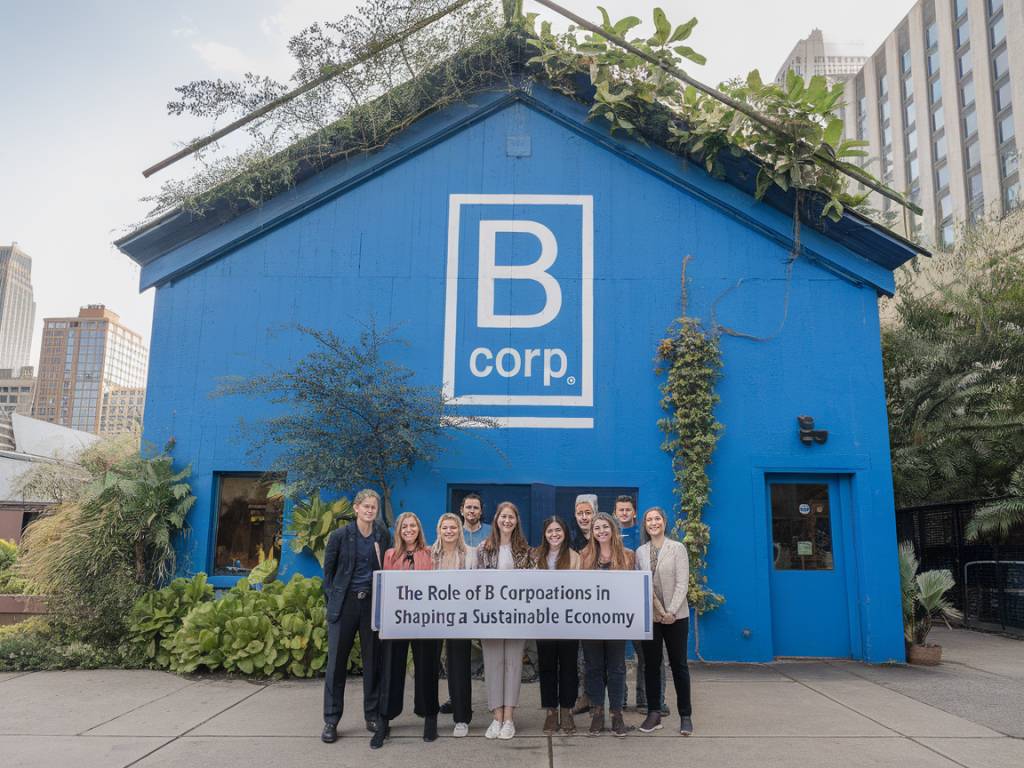The Rise of B Corporations and Their Impact on Sustainable Business
In the face of ongoing environmental crises, growing social inequality, and increasing demand for transparency, more consumers are turning to businesses that prioritize purpose over profit. This paradigm shift has given rise to a new kind of business entity: the B Corporation, or Benefit Corporation. These ethically driven companies aim to redefine success in business by balancing financial performance with social and environmental responsibility.
Certified B Corporations are not just businesses; they are part of a global movement to embed sustainability at the heart of the economy. Their role in shaping a sustainable economy is multifaceted and increasingly significant in today’s corporate landscape.
What is a B Corporation? Definition and Certification Process
A B Corporation (B Corp) is a business that has been certified by the nonprofit B Lab to meet rigorous standards of social and environmental performance, transparency, and accountability. Unlike traditional companies that operate primarily to maximize shareholder value, B Corps are legally required to consider the impact of their decisions on all stakeholders — including workers, customers, suppliers, the community, and the environment.
The certification process is comprehensive and includes the B Impact Assessment, a tool that evaluates a company’s operations and business model across five key areas:
- Governance
- Workers
- Community
- Environment
- Customers
To become certified, a company must score at least 80 out of 200 points and submit to ongoing evaluations every three years. This ensures continuous improvement and accountability.
How B Corporations Contribute to a Sustainable Economy
The core mission of B Corporations is to create value for society and the environment alongside financial profits. Their contribution to a more equitable and sustainable economy can be observed in several concrete ways.
Promoting Sustainable Business Practices
B Corps integrate sustainable practices into every aspect of their operations. From sourcing renewable energy and reducing carbon emissions to ensuring ethical labor practices in their supply chains, these companies take a holistic approach to corporate sustainability.
Redistributing Wealth and Empowering Workers
A key aspect of the B Corp framework is prioritizing fair labor practices. Certified companies often implement:
- Living wages and benefits for employees
- Diversity, equity, and inclusion initiatives
- Employee ownership or profit-sharing programs
By empowering workers and promoting economic inclusion, B Corps help build more resilient and equitable communities.
Encouraging Transparency and Accountability
A defining trait of B Corporations is their commitment to transparency. Each B Corp must publish an annual impact report, which outlines their social and environmental performance. This not only builds trust with consumers and investors but also sets a standard for other firms to follow.
Leading by Example in Corporate Social Responsibility
B Corporations are at the forefront of the corporate social responsibility (CSR) movement. By demonstrating that ethical operations can coexist with profitability, they act as models for other businesses looking to transition to more responsible practices.
Examples of Leading B Corporations
Some of the most influential and successful companies today have earned their B Corp certification, proving that ethical business practices can scale globally.
- Patagonia – Known for its environmental activism and sustainable apparel, Patagonia reinvests profits into environmental causes and advocates for public policy reform.
- Ben & Jerry’s – This iconic ice cream brand embraces ethical sourcing, environmental stewardship, and social activism.
- Allbirds – A sustainable footwear company using natural materials and carbon labeling to promote eco-conscious production and consumption.
These examples demonstrate the diverse ways in which B Corps integrate sustainability goals into their business strategies.
The Business Case for Becoming a B Corporation
While ethical motivation drives many companies to seek B Corp certification, there are tangible business advantages to becoming certified.
Consumer Trust and Brand Loyalty
Today’s consumers are more informed and conscious about the brands they support. B Corp certification serves as a strong signal of social and environmental responsibility, helping companies build deeper relationships with ethically minded consumers.
Attracting and Retaining Talent
Employees, especially millennials and Gen Z, are seeking purpose-driven careers. Certified B Corporations often attract top talent by offering values-aligned missions, inclusive cultures, and meaningful work.
Investor Interest in Responsible Businesses
There is growing interest among investors in impact investing and Environmental, Social, and Governance (ESG) criteria. Being part of the B Corp community can open the door to mission-aligned capital and long-term investment partnerships.
Operational Improvements and Risk Management
The stringent assessment and review process involved in B Corp certification encourages companies to identify inefficiencies, reduce risks, and embed continuous improvement in their operations.
Challenges and Criticisms Facing B Corporations
Despite their many benefits, B Corps are not without challenges. They often face skepticism about whether certification is meaningful or merely a marketing tool. In response, B Lab has strengthened certification requirements and pushed for greater accountability.
Additionally, the added layer of regulatory and legal obligations — particularly in jurisdictions where Benefit Corporation status is a legal designation — may deter some businesses from pursuing certification. However, many argue that these commitments are necessary to truly embed sustainability into business practices.
The Future of B Corporations in a Global Sustainable Economy
As the world grapples with climate change, resource scarcity, and widening inequality, the principles upheld by B Corporations are increasingly relevant. B Corps are showing that it’s possible to rethink capitalism not as an extractive system, but as a regenerative force for good.
From influencing public policy to setting new industry benchmarks, B Corporations play a pivotal role in transforming the global economy. Their impact extends well beyond their own operations — they serve as catalysts for wider systemic change.
For consumers, investors, and entrepreneurs striving to support or create sustainable businesses, the B Corp movement offers a powerful roadmap. By demonstrating that companies can be both profitable and purposeful, B Corporations inspire trust and galvanize collective action toward a just and sustainable future.




